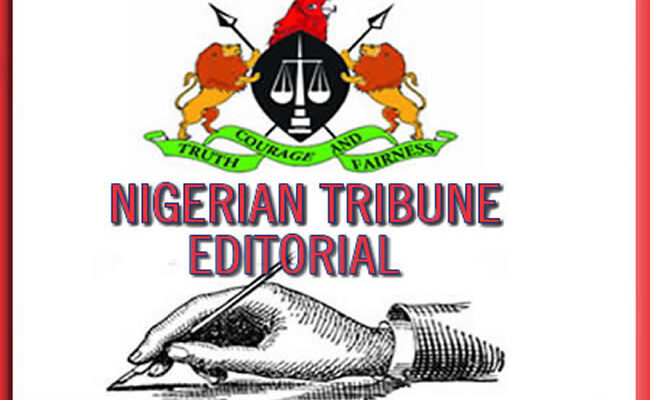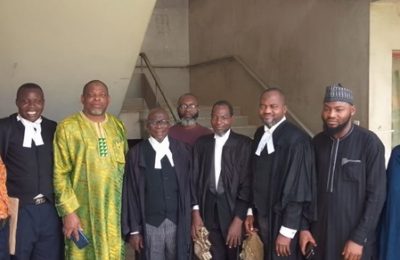THE All Progressives Congress (APC) was declared the winner of the local government elections recently held in Kwara State. A statement released by Mohammed Baba-Okanla, chairman of the State Independent Electoral Commission (SIEC), indicated that the ruling APC won all chairmanship and councillorship seats across the 16 local government councils and 193 wards. Five political parties participated in the elections, including the APC, Allied Peoples Movement, Peoples Democratic Party (PDP), Social Democratic Party, and the Accord Party.
Similarly, the APC emerged victorious in all 23 chairmanship and councillorship seats in the local government elections held in Sokoto State. The results were officially announced by Alhaji Aliyu Suleiman, chairman of the Sokoto State Independent Electoral Commission (SSIEC). Suleiman revealed that 15 political parties participated in the elections. However, the main opposition party, PDP, chose not to contest. Meanwhile, in Enugu State, the local government council elections resulted in a declaration of victory for the ruling PDP. Professor Chris Ngwu, chairman of the Enugu State Independent Electoral Commission, announced that the PDP secured all 17 chairmanship seats, acknowledging some irregularities but asserting that the overall election was conducted in a free, fair, and transparent manner. The statement noted: “The electoral process, which unfolded across the 16 local government areas and 193 wards, witnessed the participation of five political parties: APC, APM, PDP, SDP, and Accord. Our electoral officers and returning officers from the field have filed their results, and I’m pleased to share the outcomes with you.”
In Imo State, the ruling APC claimed all the 305 councillorship seats and the 27 chairmanship positions in the local government elections held in the state. Announcing the results at the Imo State Independent Electoral Commission’s office, ISIEC Chairman, Charles Ejiogu stated: “The election followed the laid-down guidelines and procedures. We ensured robust participation, had meetings with key stakeholders and security agencies, and observed the primaries of political parties. Elections took place across 305 wards and 27 local governments, with voting occurring at 4,758 polling units.”

The conduct of the state electoral bodies raises significant concerns regarding the integrity of the electoral process in Nigeria. A troubling pattern has emerged whereby governors frequently appoint individuals to the State Independent Electoral Commissions (SIECs) who are aligned with their political interests. This practice effectively compromises the independence of these electoral bodies, transforming them into instruments of the ruling party rather than impartial overseers of the electoral process. As a result, these commissions often operate under the directives of the governors, creating formidable barriers for opposition parties seeking to participate in the elections.
The implications of this situation are profound. Candidates from popular opposition parties are routinely disqualified or face insurmountable challenges, undermining the essence of a competitive political landscape. Such actions not only stifle political diversity but also disenfranchise voters who seek alternatives to the status quo. Furthermore, the state assemblies, which are ostensibly designed to serve as checks on the power of governors, frequently fall under their influence. This subservience diminishes the role of the legislature in providing oversight, leading to a lack of accountability that ultimately disincentivizes good governance.
Local governments should ideally serve as the cornerstone of development, acting as the most immediate level of governance for citizens. It is within local governance structures that democracy should take root and flourish, allowing for citizen engagement, representation, and the addressing of local needs. For local governments to fulfill this critical role, the electoral process must be transparent, clean, fair, and credible. However, the reality in Nigeria is starkly different. With one political party exerting control over multiple facets of governance and with opposition voices systematically silenced, ensuring transparency and accountability becomes nearly impossible.
The erosion of trust in the electoral process has far-reaching consequences for democratic governance. When citizens perceive elections as mere formalities rather than genuine expressions of their will, voter apathy increases, and civic engagement declines. This disengagement further entrenches the power of those currently in control, creating a vicious cycle that undermines the foundational principles of democracy. To break this cycle, it is imperative to reform the electoral process at both the state and local levels, ensuring that electoral bodies operate independently and that all political parties are afforded equal opportunities to compete. Ultimately, restoring credibility to local government elections is vital for promoting effective governance and fostering public trust. A robust democratic system relies on the active participation of its citizens, and this participation must be rooted in a belief that their votes matter. Only through genuine electoral reforms and a commitment to transparency can Nigeria hope to build a political environment where democracy truly thrives, empowering local governments to serve their intended purpose as the bedrock of development and community engagement.

Even state elections are plagued by malpractice. Nigerian politicians have become a unique breed of shameless individuals, celebrating corrupt elections—particularly at the local government level—without any sense of shame. They routinely accept announcements from their so-called State Independent Electoral Commissions, declaring the ruling party’s victory across all available seats, which defies logic and decency. How can a single political party claim victory in every election, despite the well-known diversity within each state? This scenario is not only childish but also deeply shameful, reflecting the deplorable state to which politicians have reduced the country.
While every society must find its own method of selecting leaders, it is evident that no positive outcomes can arise from the charade known as elections in Nigeria. The ongoing farce only serves as a waste of time and resources, as the pretense of democratic elections continues. It is crucial for the country to engage in meaningful dialogue about genuine methods for selecting rulers, given the glaring failures of the electoral process in these contexts.
Read Also: Akwa Ibom LG poll: Political parties sign peace accord







